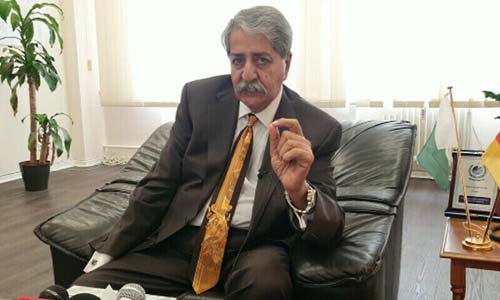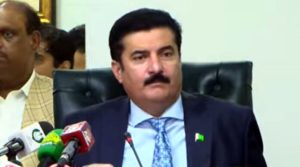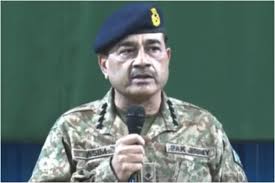Connecting to global supply chain, major challenge for Pakistan: Commerce Minister

Islamabad: Federal Minister for Commerce, Syed Naveed Qamar on Saturday said that connecting Pakistan to the global supply value chain was a major challenge that the government was constantly working on. Pakistan’s trade can be enhanced by connecting the our trade system to the global supply chain, he said.
The Minister led the delegation from Pakistan comprising officials from the Permanent Mission of Pakistan to the World Trade Organization (WTO) and the Ministry of Commerce, Islamabad, said a press release received here.
The 12th Ministerial Conference of the World Trade Organization (WTO) was held in Geneva from June 12-16 June 2022.
Addressing the conference, Naveed Qamar highlighted some of the challenges being faced by Pakistan in the wake of the balance of Payments crisis, and looming Food Security threats.
The Minister underscored Pakistan’s commitment to the system and called for a focus on issues that would help us come out from the pandemic and prepare for the future, such as finding solutions to challenges posed by the intellectual property system, lack of technology transfer to developing countries and the access to policy tools to augment production.
On the opening ceremony of the Conference, the Minister addressed the the challenges confronting the Multilateral Trading System and emphasized the need for upholding the fundamental principles enshrined in the Marrakesh Agreement such as consensus-based decision making and special and differential treatment to achieve the objectives of economic growth and sustainable development, raising standards of living and generating employment.
The lacking implementation of mandates from Ministerial Conferences, a dysfunctional dispute settlement body, a tendency to ignore the rules-based system and unilateral actions of members were highlighted as some of the major challenges confronting the system.
In a session on the proposed reform of the WTO, the Commerce Minister highlighted the existing imbalances in trade agreements that favored developed countries and called for restoring confidence in the organization by restoring a developmental agenda and safeguarding the foundational principles of the organization.
He further reminded the members of Pakistan’s commitment to active participation particularly in developmental work that could contribute to the attainment of long-term objectives of developing countries.
The outcomes of the conference also include Ministerial declarations on food security, collaboration with the World Food Programme and a specific time-bound extension of the moratorium on customs duties on electronic transmissions, recognition of the global environmental challenges, commitment to work in the area of services trade, and the importance of strengthened collaboration and cooperation among international organisation.
On the issue of WTO response to pandemic, Pakistan played a central role in leading a coalition of several members and successfully negotiated Ministerial Declaration in response to Covid-19 and preparedness for future pandemics.
This document clearly recalls members’ commitments under the WTO, the challenges faced during the pandemic, lessons learnt, and a commitment to prepare for future emergencies by focusing on issues of food security, technology transfer, intellectual property, trade in services, and regulatory and international cooperation.
As a cosponsor of the demand for a waiver on intellectual property rights to secure safe, equitable, and affordable vaccines, Pakistan successful negotiated an outcome under the Covid-19 TRIPS decision that would help local manufacturers develop vaccines, therapeutics, and diagnostics.
The agreement calls for the implementation of the UN SDG 14.6 to secure sustainable development by prohibiting harmful subsidies for fishing.
At the same time, it allows developing countries the essential special and differential treatment to assist fishing activities in particular for resource poor, artisanal and coastal fisheries.
The Minister for Commerce effectively led the delegation in the negotiations on an Agreement on Fisheries Subsidies.
Apart from the engagements at the Conference, the Minister also engaged in bilateral meetings with various other developing countries and stressed the need for enhanced bilateral cooperation in all areas, and collective participation in multilateral negotiations through effective coalition building.





